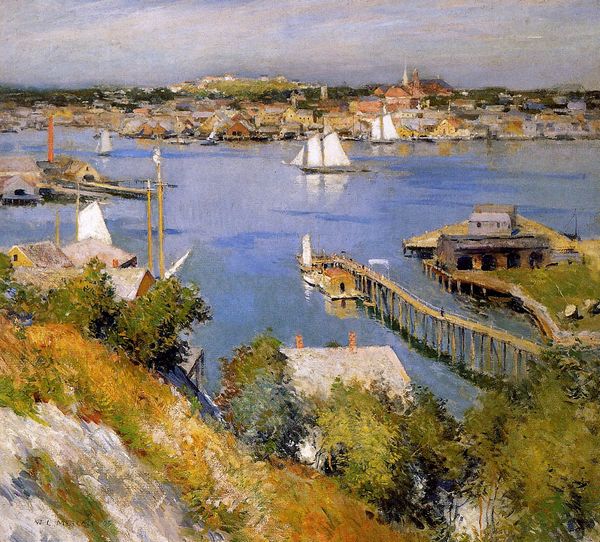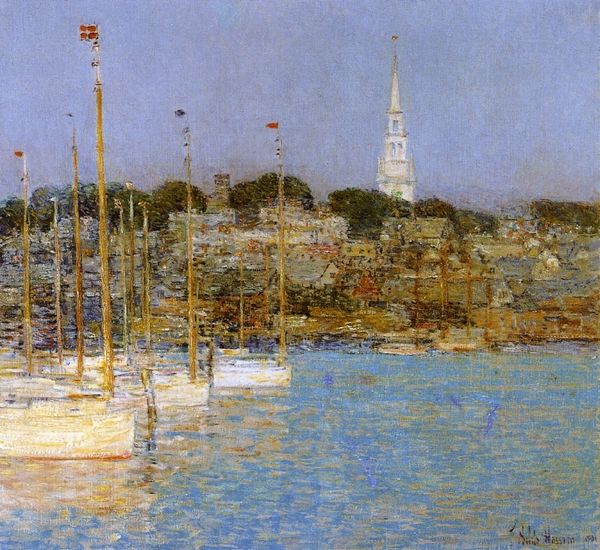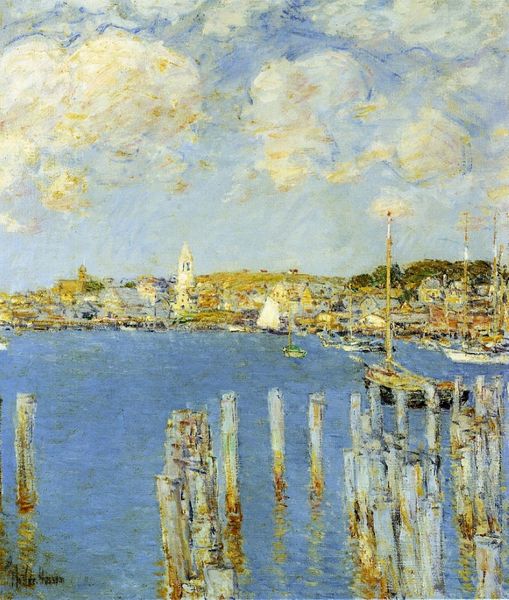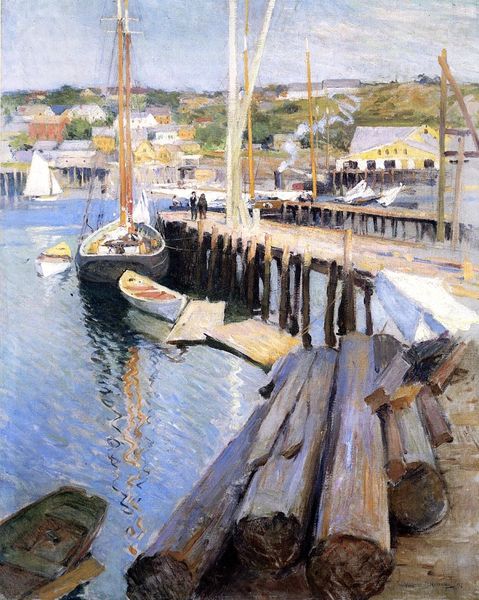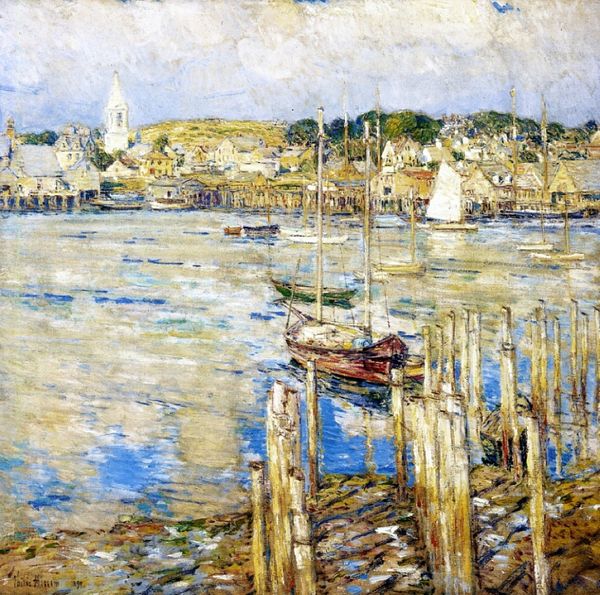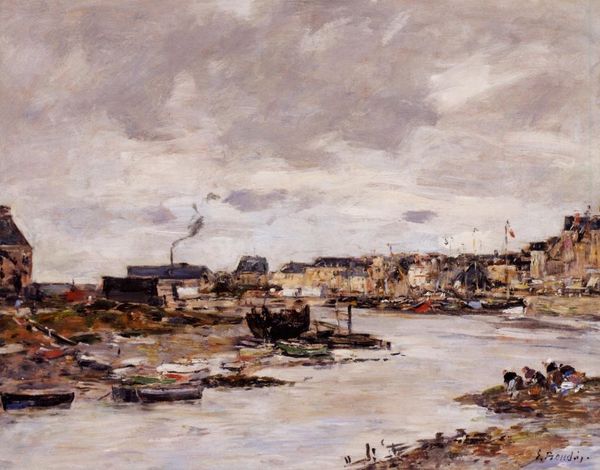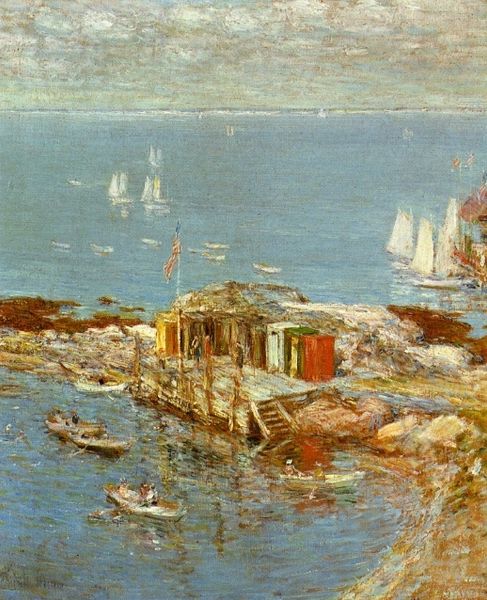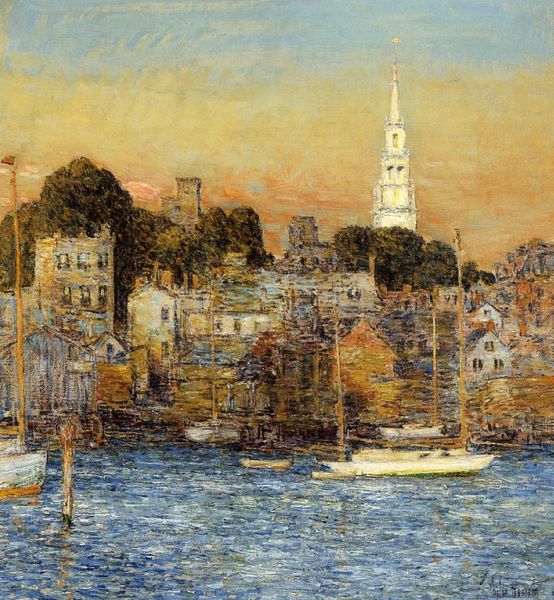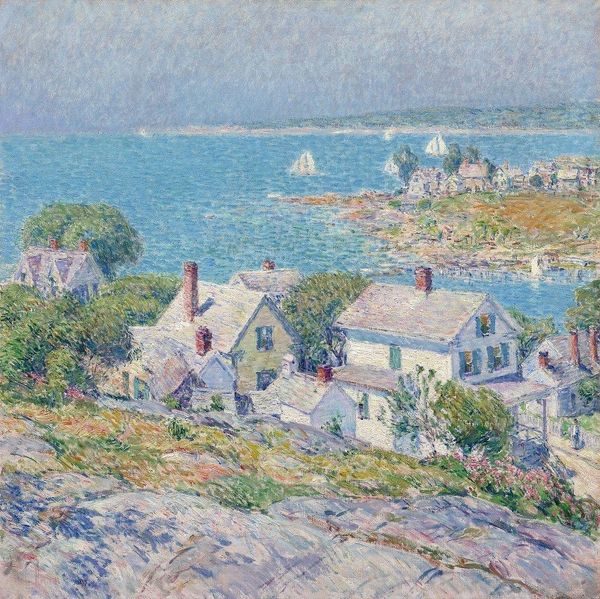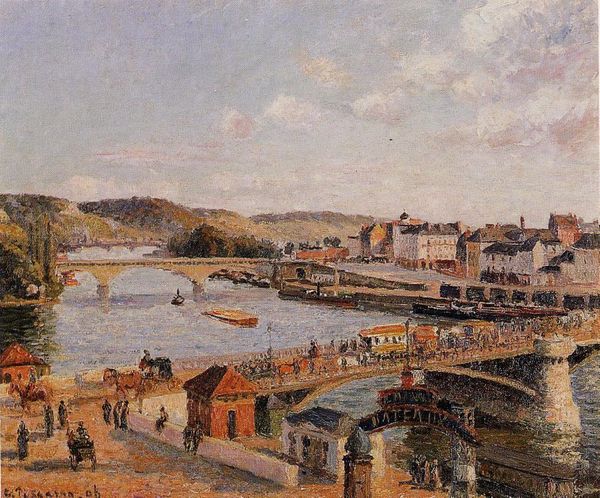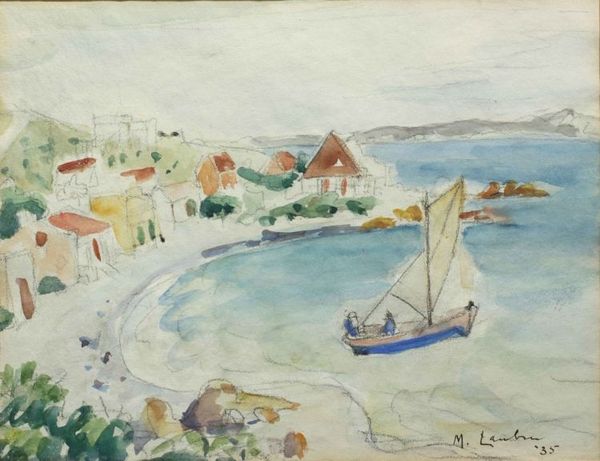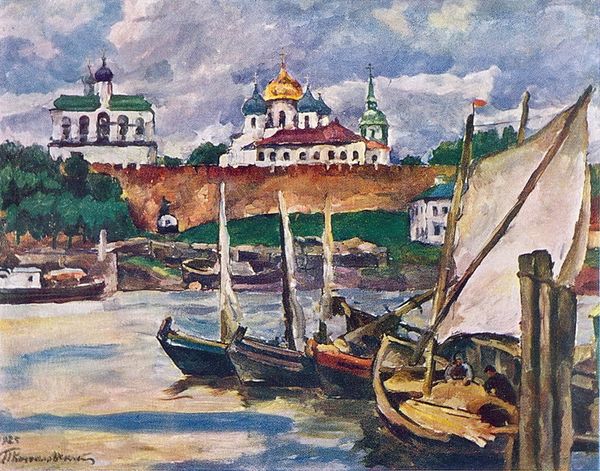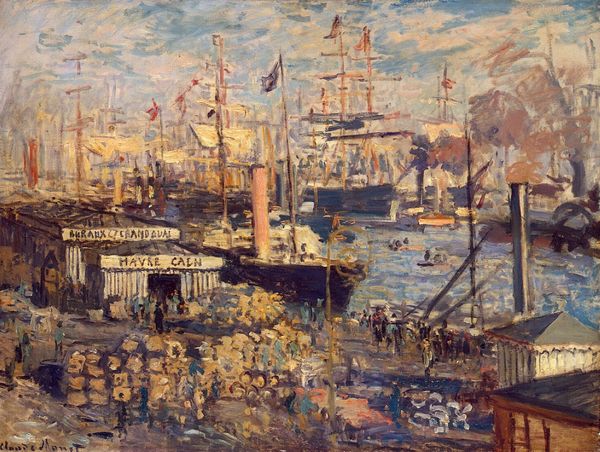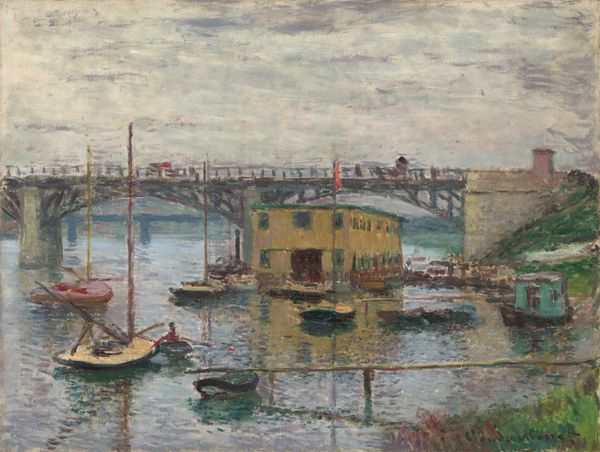
plein-air, oil-paint
#
boat
#
ship
#
impressionism
#
impressionist painting style
#
plein-air
#
oil-paint
#
landscape
#
impressionist landscape
#
oil painting
#
seascape
#
water
#
cityscape
Copyright: Public domain
Editor: So, here we have Childe Hassam's painting "Gloucester Harbor," presumably an oil on canvas done en plein-air. I’m immediately struck by the busy scene and its summery, almost touristy feel. What do you see in this work? Curator: Beyond the surface, I see a complex representation of American identity and the changing social landscape at the turn of the century. Hassam’s Impressionistic style, while beautiful, also obscures the realities of the working class that fueled this port town. How might we consider the romanticized view of labor versus the lived experiences of those who toiled in Gloucester? Editor: That's an interesting point. I hadn't really considered the potential for social commentary. It's easy to get lost in the pretty colors. But thinking about it now, you are right: we see fishing boats in the background, and yet the city appears picturesque and inviting from our high vantage point. Curator: Exactly. The Impressionists were often criticized for focusing on aesthetics at the expense of social consciousness. Who has access to leisure and beauty, and who is excluded? This becomes a crucial question. Consider, for instance, the exclusion of women or minority ethnic groups from the artistic and commercial benefits that Gloucester presented in this time period. Where are they in Hassam's composition, or conversely, in Hassam's harbor? Editor: I see what you mean. Viewing it through that lens, the painting feels… incomplete, almost like a curated fantasy. It prompts questions rather than providing answers, even making the absence of specific narratives around working women, black workers, and/or immigrant experiences conspicuous by omission. Curator: Precisely! And that's where art history becomes truly relevant. By engaging with critical perspectives, we start to recognize the narratives that art both presents and suppresses. Editor: Thank you for opening my eyes to the larger context and deeper meaning that "Gloucester Harbor" holds. It definitely changed the way I think about Impressionism now. Curator: Indeed. Art history allows us to explore art beyond mere aesthetics, providing space for more inclusive narratives and prompting essential dialogue.
Comments
No comments
Be the first to comment and join the conversation on the ultimate creative platform.
